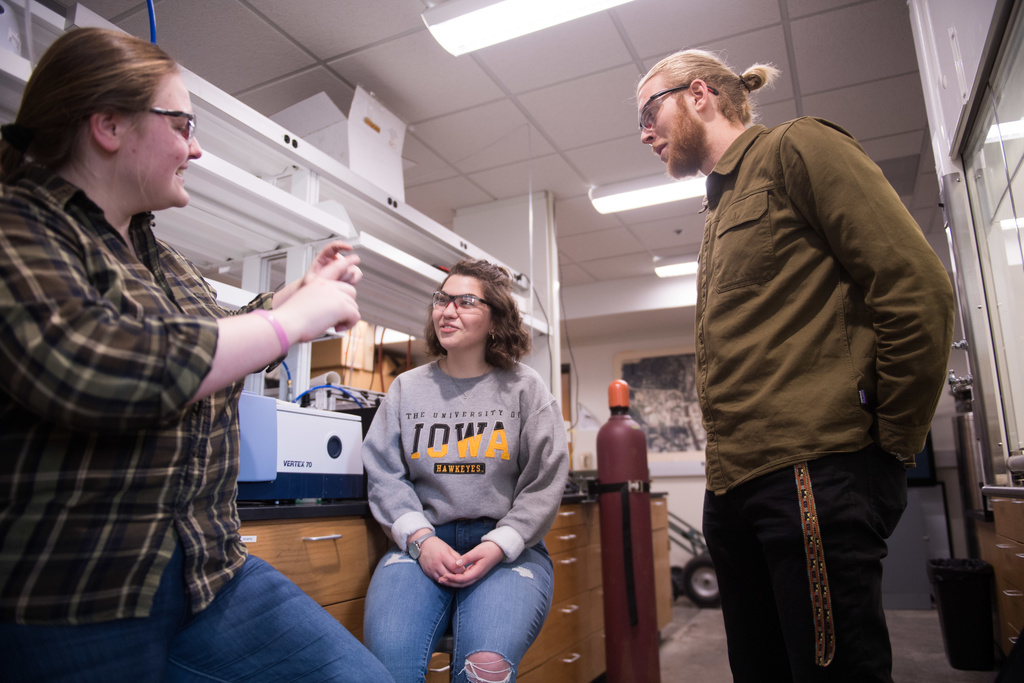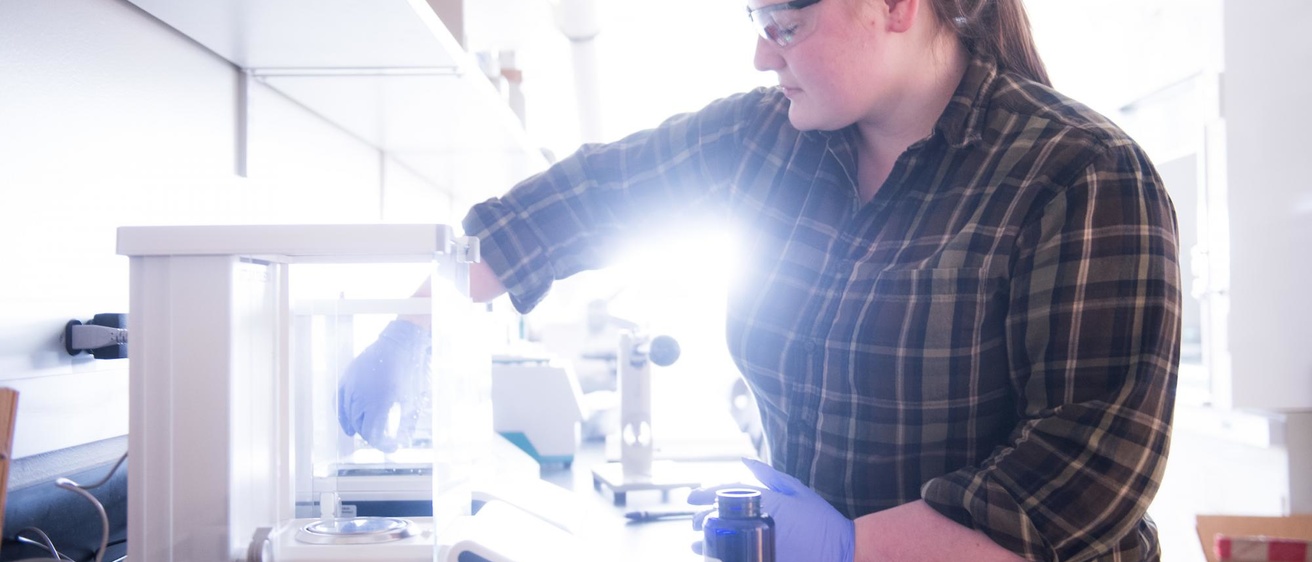Scott Shaw wishes he had known more about research when he was in college.
Shaw, associate professor in the University of Iowa Department of Chemistry, is a first-generation college student who grew up near the town of Sublette in rural Illinois.
When he enrolled in graduate school at the University of Illinois-Urbana Champaign, he had little exposure to research as an undergraduate at Monmouth College. He hadn’t read peer-reviewed studies published in academic journals; he hadn’t spent much time in a research lab. He hadn’t been guided by a faculty mentor.
“I was very naïve about what research was,” Shaw says. “It was only after some months at the University of Illinois that I began to realize what research was. It was a steep learning curve, to say the least.”
Shaw wanted to minimize that learning curve for select incoming students at the UI by creating the Rural Scholars program. The initiative, beginning its fifth year this fall, is for rural Iowa students who have been accepted to the UI and live in communities not located near an in-state research institution. The idea, Shaw says, is to expose rural students to research the moment they step on campus and thus reduce, if not eliminate, the challenge of learning about and benefiting from a research setting.
Students complete their year in the program by returning to their hometowns to talk about what they learned, further spreading the word about the value of participating in research as an undergraduate.
That’s important because rural Iowans make up more than half of the student body at the UI, but only a third participate in research, according to university data. The Rural Scholars program’s aim is to increase that percentage by identifying potential applicants with help from the Office of Admissions. Once students have been chosen, they get additional support from the Iowa Center for Research by Undergraduates (ICRU) and the Belin-Blank Center for research opportunities.
“I want to get students who are far away from any major research institution and give them insight into what research is and to learn how it works,” Shaw says. “I think it helps give them a leg up with other students who already have been exposed to research.”
The most recent group of Rural Scholars completed its project, which compared the costs of creating various blends of ethanol fuel with the cost of producing unleaded gasoline. That group—Evangeline Holyoake and Erick Fadness from Decorah, Iowa, and Camryn Norton from Pella, Iowa—spent the academic year designing its project, performing experiments, and gathering results that they presented in a poster session at the ICRU research fair in May.
The students say they knew next to nothing about research before becoming Rural Scholars. The experience was eye opening, they say, highlighted by weekly meetings with Shaw and frequent interactions with graduate students in Shaw’s lab, who introduced them to lab equipment, practices, and other facets of a successful research enterprise.

“When I first started research, I thought, ‘This is something that just smart people do, and it’s not really a normal job.’ But then you realize it is something I can do, I did do it, and how much of an impact it can have,” Holyoake says.
Holyoake is working in Shaw’s lab this summer as part of a 12-week experiential-learning curriculum through the Iowa’s Honors program.
“I can’t even describe what I thought research was before this program. I was thinking it was a stark place with people in white coats looking through microscopes,” says Holyoake, a computer science engineering major who’s also pursuing a certificate in sustainability. “Now, I realize research can be absolutely anything. You have research in engineering, in chemistry, in literature. It’s made me realize that research simply is just helping explain something that we previously didn’t understand.”
Parker Eller says he felt the same way when he enrolled in the program in fall 2015, the first year Rural Scholars was offered.
The Denison, Iowa, native says he wouldn’t have entertained doing research if he hadn’t been invited by Shaw to become a Rural Scholar.
“I probably wouldn’t have been involved in research during my freshman year, or possibly at all during my undergraduate years,” Eller says. “Coming from a smaller town, I didn’t really understand research, and I might have been hesitant to reach out to professors about research opportunities.”
Eller’s three-person group encountered a number of obstacles, but the difficulties taught him an invaluable lesson that he has carried through to his current graduate studies in the UI College of Dentistry.
“It just teaches you it’s not all eureka moments,” Eller says. “You’re not getting these big results constantly. If you do get a valid, big result, and you see someone publish a paper, they probably had a hundred failures before that one success that gets published. It really makes you appreciate the process of doing research and how much work goes into it.”
Shaw agrees that the misfires are as important as the successes.
“There’s going to be a lot of failure,” Shaw says. “That’s fine. That’s a part of research.”
Eller relayed what he learned from the program in a presentation to seniors in an advanced chemistry class at Denison High School, which he attended.
“It was a good experience going back and telling kids something I wish I had heard when I was in their shoes,” Eller says.
His teacher, Chad Van Kley, says Eller’s presentation was thorough, professional, and opened some students’ eyes.
“I think for these kids to look to him and say, ‘He’s gone on and is doing some pretty elite stuff. For him to go out and do that in his first year, maybe I can go do that too,’” Van Kley says.
Norton says that being a Rural Scholar gave her a behind-the-scenes look at college-level research during her first year at Iowa.
“It helped build my confidence in the lab and taught me the process that goes into conducting research,” says Norton, who is studying environmental engineering. “All of these skills will give me an edge as I participate in research in the future and look toward graduate school.”
Shaw hopes to expand Rural Scholars by adding more students to the program and diversifying research opportunities by including more faculty from other departments.
“I really can relate to this from my own experience,” Shaw says.
